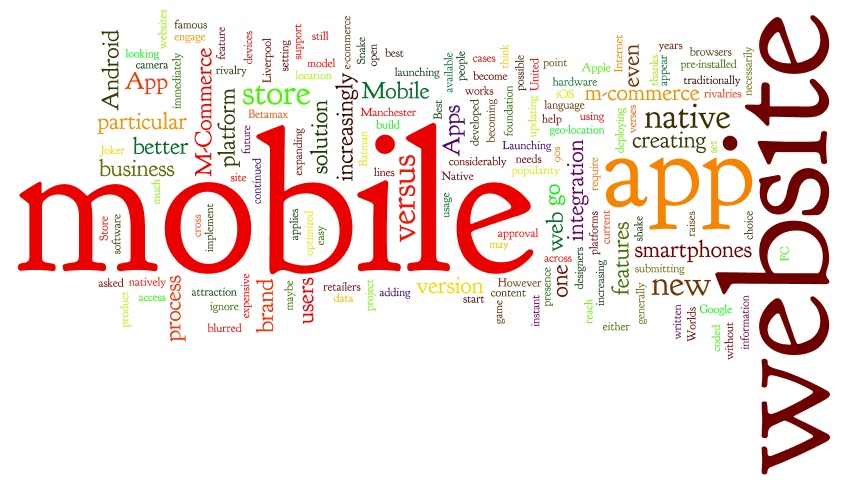
When asked about famous rivalries you may think of Batman versus The Joker, Manchester United versus Liverpool FC or maybe even VHS versus Betamax. With the continued popularity of smartphones, more and more retailers are launching either mobile websites or mobile applications, which raises a new rivalry – the mobile website versus the native app.
What is a Mobile Website?
A mobile site is a website that is optimized for mobile browsing. Mobile web usage has increased considerably over the past few years to the point where designers can no longer ignore it. A mobile-friendly website can help you engage with users and even open your content up to a whole new audience.
What is a Native App?
An app is a software application that is written in the native language of a particular platform. Apps have become increasingly popular thanks to the Apple App Store and Android Market, but more traditionally pre-installed apps were available such as the calculator or address book or the game of Snake on Nokia in the late 90s.
Where does M-Commerce fit in?
When it comes to creating a mobile presence for an e-commerce business model, a mobile website is often the best foundation.
Being Found
 A mobile website enables you to reach more customers. Despite the attraction of having your brand appear on the app store, when people are looking for a particular product or brand, they go to Google, not the app store. There are over 3 billion searches every day on Google and over 40% are for products and services. Over 20% of these searches take place from mobiles. By having a mobile optimised website and a great SEO campaign in place, you can make your mobile website prominent and visible to mobile users already searching for your products and services.
A mobile website enables you to reach more customers. Despite the attraction of having your brand appear on the app store, when people are looking for a particular product or brand, they go to Google, not the app store. There are over 3 billion searches every day on Google and over 40% are for products and services. Over 20% of these searches take place from mobiles. By having a mobile optimised website and a great SEO campaign in place, you can make your mobile website prominent and visible to mobile users already searching for your products and services.
Cost of Implementation
To implement a cross platform solution, it is generally much less expensive to build a mobile website as one version works on all smartphones. Apps are coded natively so one version needs to be developed for iOS, another for Android and so on.
As browsers offer increasing support for HTML 5, the lines between mobile website and mobile app are becoming increasingly blurred. It is possible for a mobile website to access geo-location data to show useful information such as the store nearest to the users current location.
Restrictions of 3rd Party App Stores
Launching your mobile website can be instant as there is no approval process when deploying a website to the Internet as there is when submitting an app. The same applies when updating your website or adding new features, these can be deployed immediately without having to go through a submission process.
The Best of Both Worlds
In some cases, however, a native mobile app is a better choice than a website. For example, if you require hardware integration with a device’s camera or using the “shake” feature. However, these features are not necessarily required in an m-commerce solution.
If you’re still set on creating a native app for you m-commerce business, setting up an API from the project start means easy integration in the future for expanding in to the mobile web or across other mobile platforms.
Ultimately, whether you decide to go for a mobile website or a native app will come down to your business objectives and what functionality you require a mobile commerce solution.

